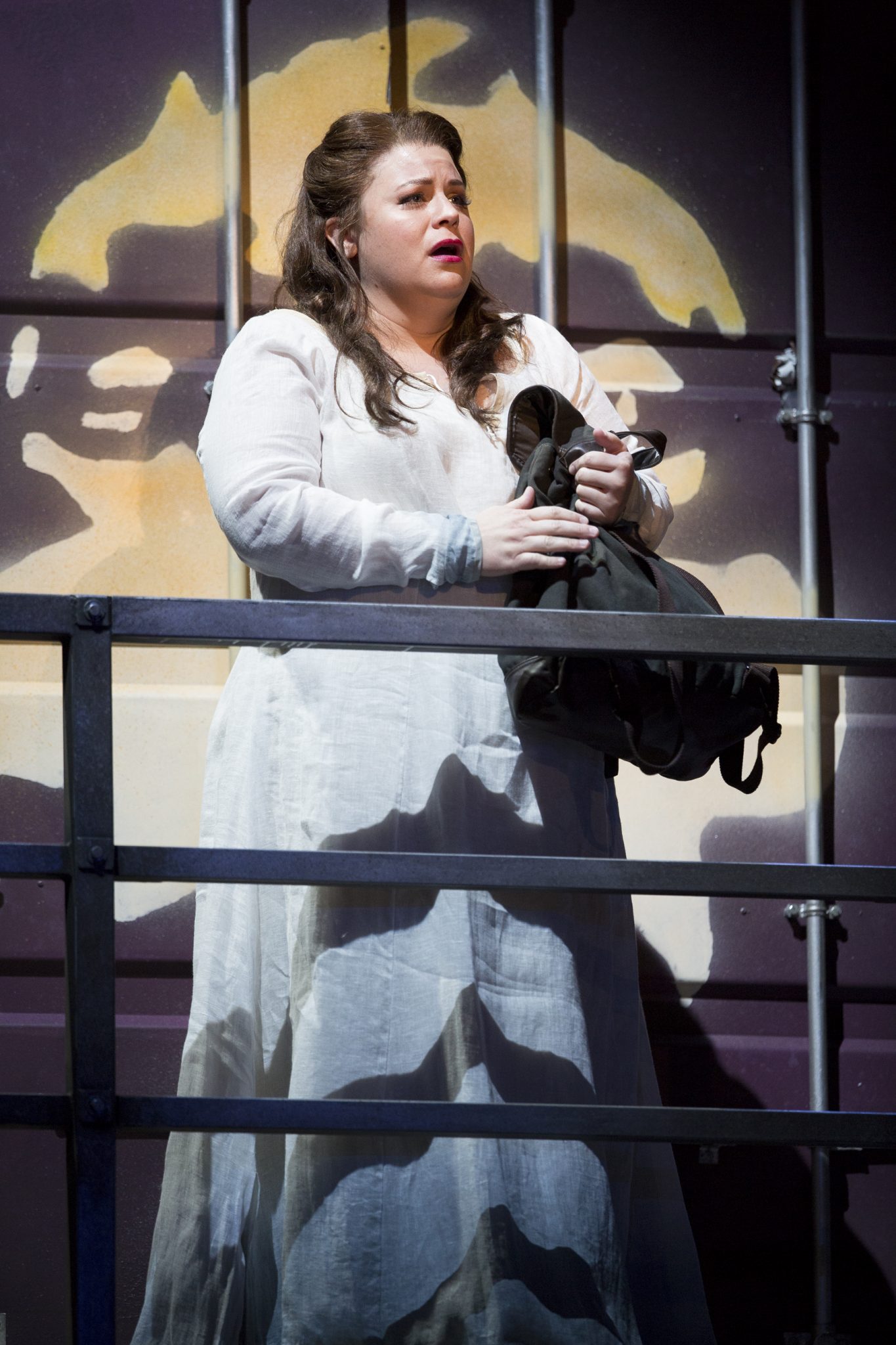“For me, more important than any place we depict onstage is the fact that these characters are all displaced. The action ranges all over a chaotic society… They’re [the main characters] like the runaway suburban kids you see in Times Square,” Washington National Opera Artistic Director Francesca Zambello is quoted in the program notes for the current production of Giuseppe Verdi‘s La forza del destino. In production at the Kennedy Center in Washington D.C. from October 12-26, I was fortunate to see the opening night (Oct 18) of the alternate leads featuring Amber Wagner as Donna Leonora, Rafael Dávila as Don Alvaro, and Luca Salsi as Don Carlo. In one of Director Zambello’s most bizarre productions with Washington National yet, the rarely performed Forza is chaotic but the musicality still finds a way to rise above all the stage action.

Photo Credit: Scott Suchman
This production brings us two important Washington National Opera debuts with conductor Xian Zhang and soprano Amber Wagner. Chinese American Zhang is a natural choice to conduct the Verdi and she does so with great passion and at times ferocity. One of the unsettling elements of Zambello’s staging was placing the overture after Act I which changes Act I into a prologue. However, when Zhang leads the orchestra to that first iteration of the “fate motif”, beginning the overture, it has taken on new meaning for the audience. Kudos to Zhang and the WNO brass for making those three unison Es as ominous as possible. As early as “Me, pellegrina ed orfana“, Amber Wagner showed a commitment to dynamic range. Wagner’s “Madre, pietosa Vergine” was an experience in the sublime featuring the shimmering strings and well-balanced men’s chorus off-stage. She demonstrated a deep understanding for the balance of vocal power and radiant tone that sustains a Verdian soprano throughout an entire role. Only one wish would be that she spent less time clutching objects (such as her backpack) onstage during her arias so she could have stayed more open especially during her exquisite “Pace, pace mio Dio!”
Peter Volpe as the Marchese di Calatrava, although only in the production for a short amount of time, was able to attract the attention of the audience into the “prologue” with his stentorian bass. It seemed as though there might have been some tempo disagreement between Zhang and Dávila in the beginning that worked itself out through the production and settled into his powerful tenor during the Act III “La vita è inferno all’infelice.” Dávila and Salsi shared some compelling and brawny moments in this scene particularly in their “Solenne in quest’ora.” Salsi, occasionally, caricatured his Carlo to a point that read as over-acting. Although he found his most successful moments in the determined “Urna fatale del mio destino.” Enrico Iori as Father Guardino and Valeriano Lanchas as Brother Melitone added counterbalances to this Forza. Lanchas added much-needed levity to Iori’s strict presence physically and vocally. Finally, Robert Baker as Trabuco and Ketevan Kemoklidze as Preziosilla submitted admirably entertaining performances in the confusing and chaotic shipping container landscape of Act II.
Zambello’s unique approach to this production is appreciated but not found quite as successful as her other endeavors. However, she created the right elements for the leads to give solid and at times profound performances. I certainly hope that we will see more of Amber Wagner and Xian Zhang at Washington National Opera in future productions. Audiences have one more chance to see Wagner in the October 22nd performance. More information can be found at www.kennedy-center.org/wno.

[…] in performance: Two Standout Debuts in Washington National’s “Forza” (sybariticsinger.com) […]